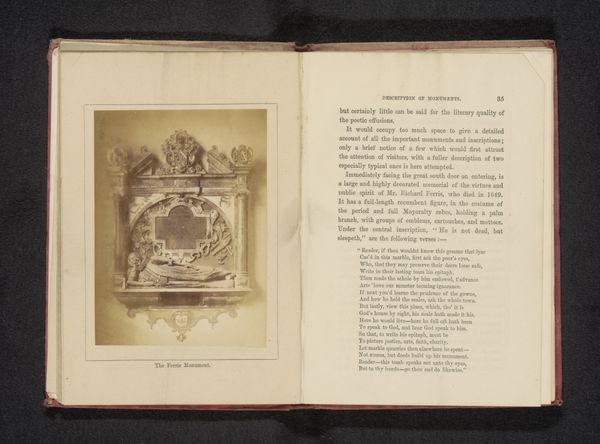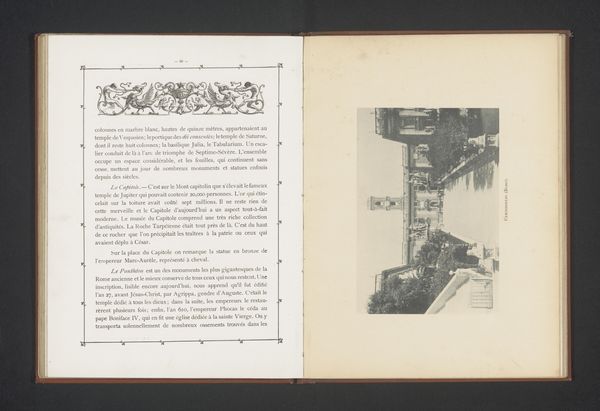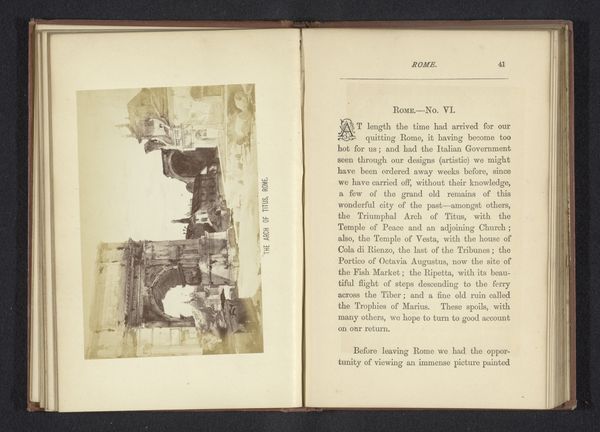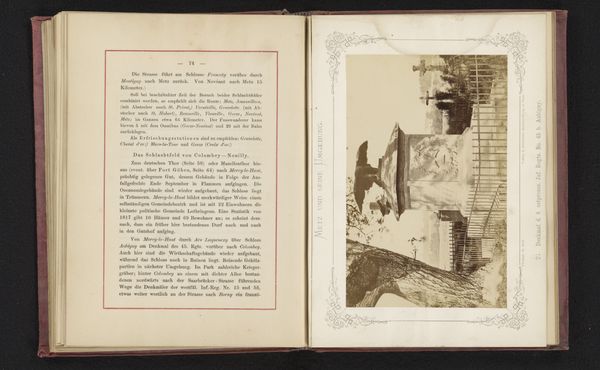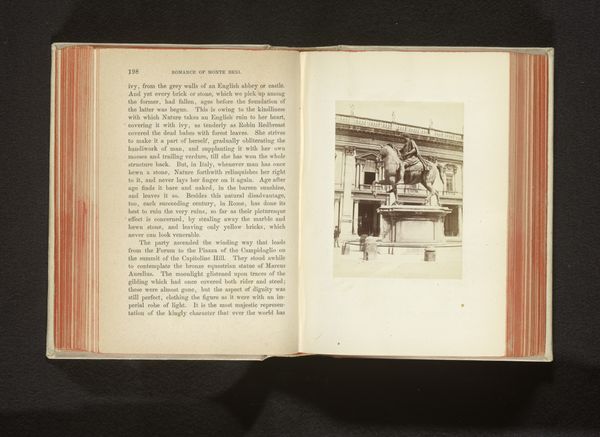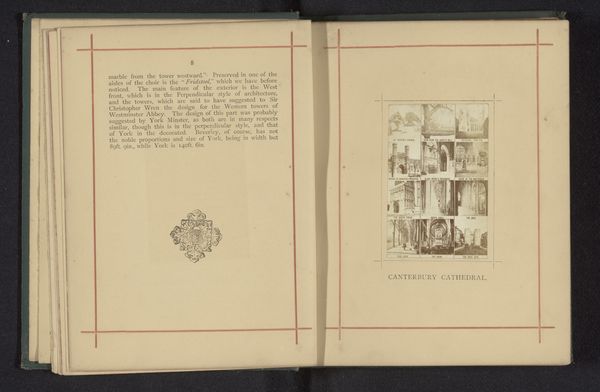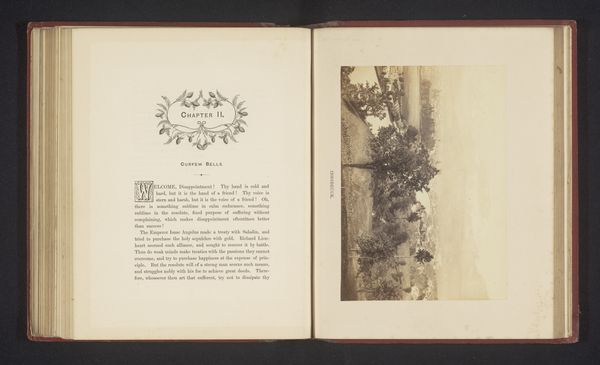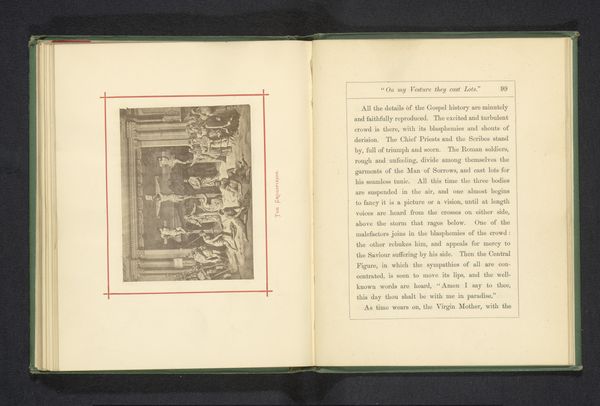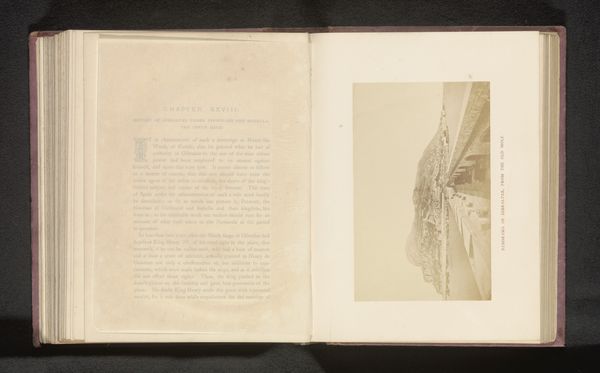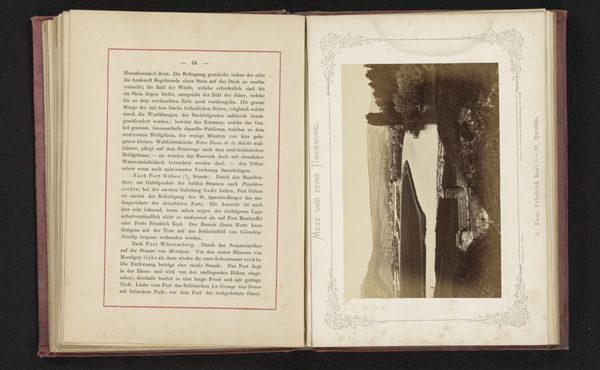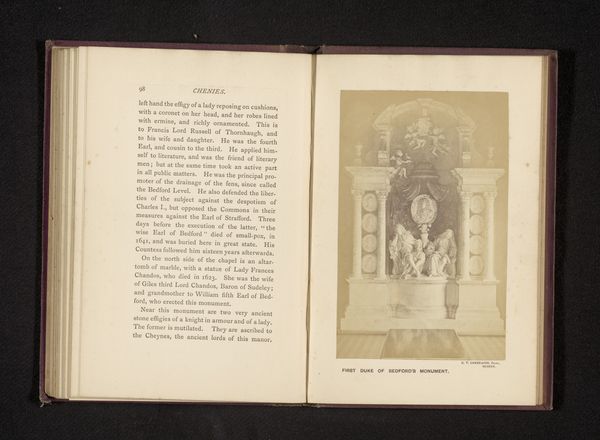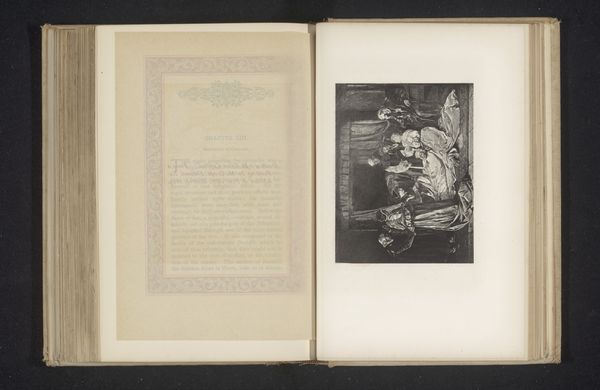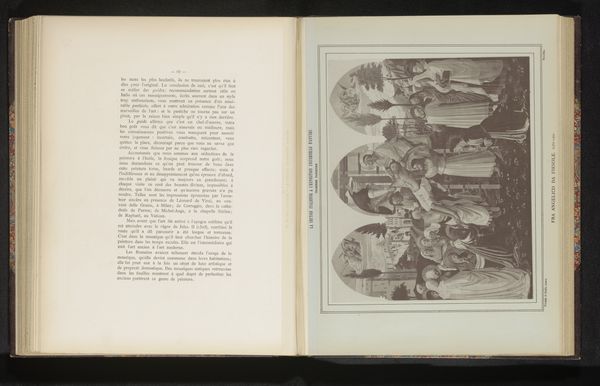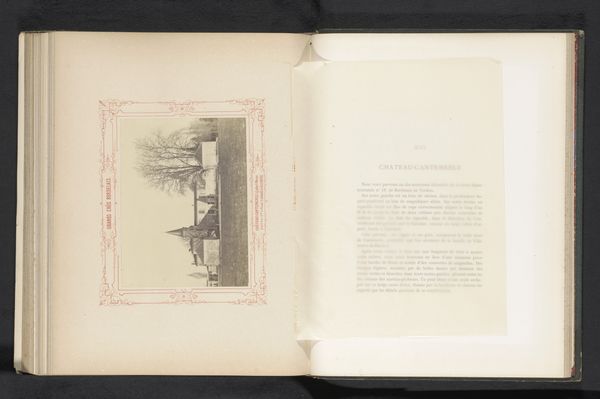
print, photography
#
aged paper
#
homemade paper
#
paper non-digital material
#
paperlike
# print
#
sketch book
#
landscape
#
paper texture
#
photography
#
personal sketchbook
#
journal
#
fading type
#
genre-painting
#
history-painting
#
historical font
Dimensions: height 138 mm, width 102 mm
Copyright: Rijks Museum: Open Domain
Curator: This is an image titled “Gezicht op een kamer in Moor Park Mansion in Rickmansworth.” Attributed to H.V. Lemenager, this print on paper likely predates 1871, and gives us a view into a specific room within the historic estate. Editor: My first thought? Elegant austerity. There’s such a muted, reserved beauty in this monochromatic image. The play of light and shadow, the almost haunting stillness of the hall – it's like peering into a faded dream. Curator: Indeed, the medium certainly contributes to that dreamlike quality. It depicts a scene within Moor Park Mansion, a place steeped in history. Consider the context: photographic prints like this offered a window into aristocratic life for a burgeoning middle class, shaping perceptions of wealth, taste, and historical lineage. Editor: You're right, it does more than just show a room. Look at how the grand painting dominates the space! And the furniture... each object meticulously placed. This image is carefully constructed, designed to communicate power and refinement. Makes you wonder who meticulously arranged all those chairs. Curator: Precisely! Think of photography's role in constructing national identity at this time. Documents such as this circulated widely and helped cement cultural ideas about English heritage and the aristocracy. Consider also how access to these kinds of images shaped class consciousness and notions of domestic space. Editor: That’s fascinating! I didn’t consider the ripple effect and public fascination surrounding the lifestyle of the upper crust. You know, what strikes me, though, is the very personal intimacy of seeing such an ordinary, almost mundane scene. Yet captured here, that moment of daily life from over a century ago, gains a unique sort of historical weight. It makes the past feel present somehow. Curator: It does, doesn't it? And by understanding the work's place within a broader social landscape, we can understand better both its overt declarations and its underlying cultural work. Editor: Beautifully put. Thanks for drawing me further into the social contexts, making my casual viewing a far more richer, considered experience.
Comments
No comments
Be the first to comment and join the conversation on the ultimate creative platform.
